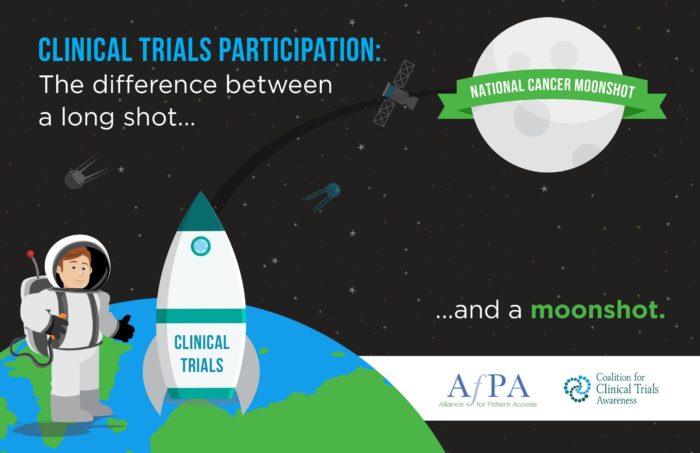Cancer Moonshot: One Year Later
July 11, 2017
It’s been over a year since the launch of former vice president Joe Biden’s Cancer Moonshot, designed to spur innovation and encourage collaboration on finding cures for cancer. So now, patients, physicians, researchers and policymakers are pausing to ask: Are we any closer?
At the recent “Cancer Moonshot: One Year Later” event in Washington, DC, advocacy and research organizations including Cancer Support Community, CancerCare and others, reflected on the initiative’s overarching goal: a decade of progress toward cancer care condensed into five accelerated years. Presentations touched on the continuum of cancer care, the importance of caretakers and patients’ families, and the need for improved clinical trials participation.

Several advances are evident. A new federal Genomic Data Commons encourages researchers to share information that could help develop precision medicines. The data-sharing platform now includes information from 14,500 cancer patients. And a new nonprofit, the Biden Cancer Initiative, offers former vice president Joe Biden and Dr. Jill Biden the chance to tackle “the institutional and structural issues that slow down progress in fighting all forms of cancer.”
Though promising, the moonshot efforts could do more to further patients’ access to innovative cancer treatments. For instance, in addition to encouraging pharmaceutical companies to make oncology drugs more affordable, the initiative might also address health plan barriers. Cancer patients increasingly discover that health plans are shifting the cost of innovative drugs through co-pays and high deductibles.
There’s also the issue of diagnostics needed to determine which precision oncology therapies are right for which patients. These can present upfront costs that some health plans may hesitate to cover. For patients to benefit from the advances envisioned by the moonshot, however, they will need access to diagnostics as well.
The Cancer Moonshot’s vision of widespread collaboration, breakthrough research and innovative medicine remains strong. But the victory of long-awaited treatments will be short lived if this initiative’s trip to the moon doesn’t also include a pathway for patients to access life-changing cancer drugs.
Tags: Cost Sharing, Innovation, OncologyCategorized in: Blog


